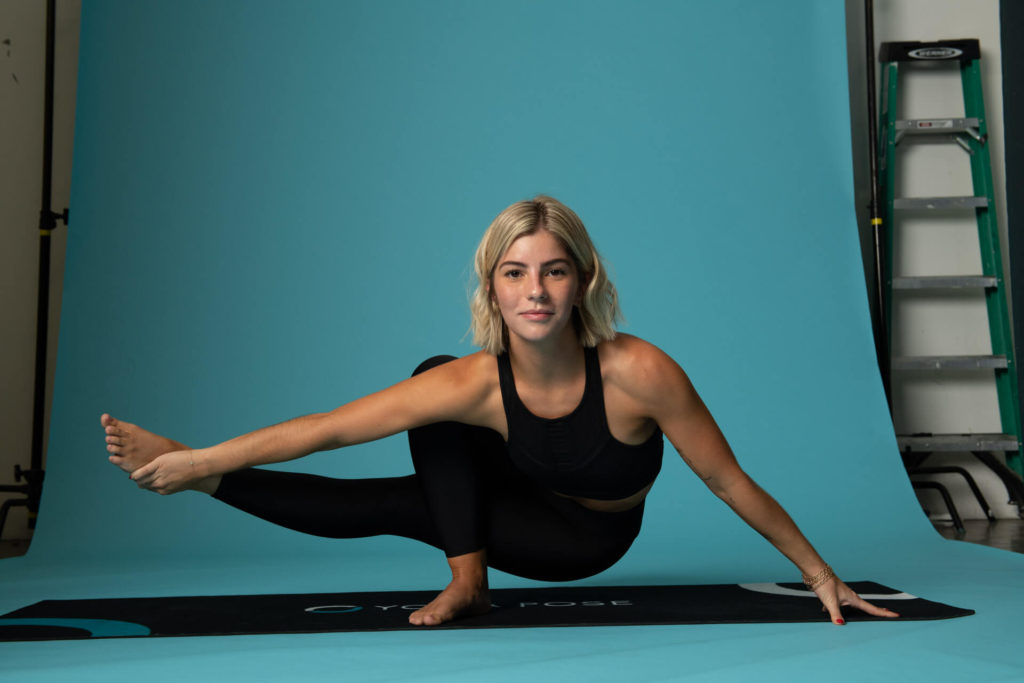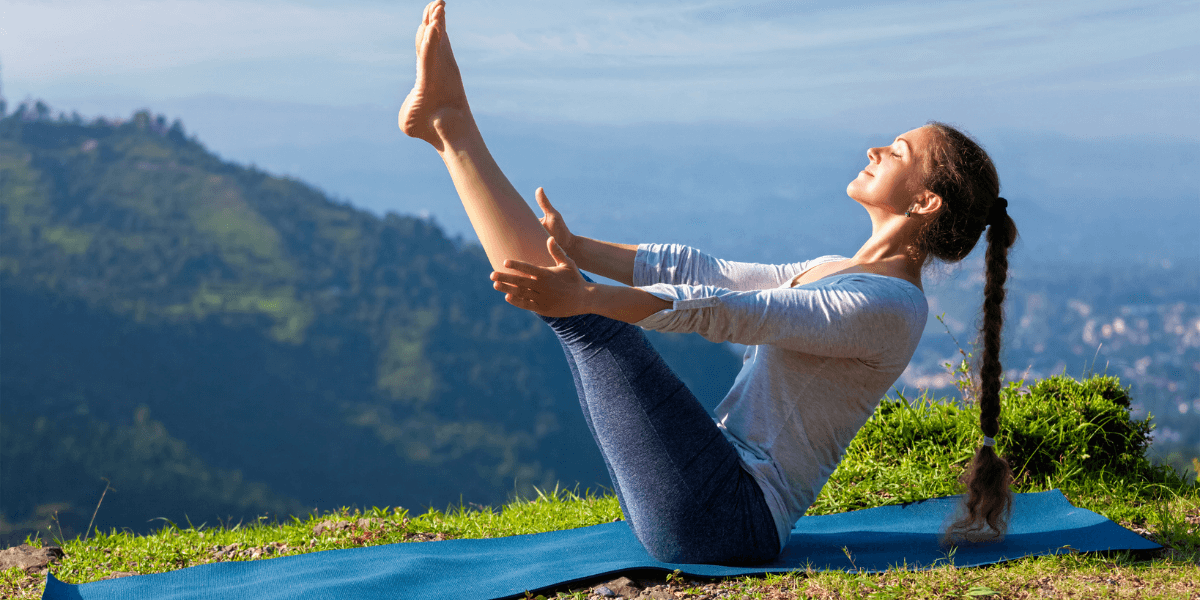MentalHealth.gov defines mental health as, “Mental health includes our emotional, psychological, and social well-being. It affects how we think, feel, and act. It also helps determine how we handle stress, relate to others, and make choices.” While yoga is not a substitute for help from a qualified physician, studies by the International Journal of Yoga and the Patanjali Research Foundation revealed that practicing yoga benefits mental health by reducing anxiety, and improving sleep and health-related quality of life.
Mental health has a taboo around it for no reason. Every person deals with mental health or lack thereof—it’s up and down, day by day. Try these nine mental health yoga poses to help you in varying aspects of mental health.
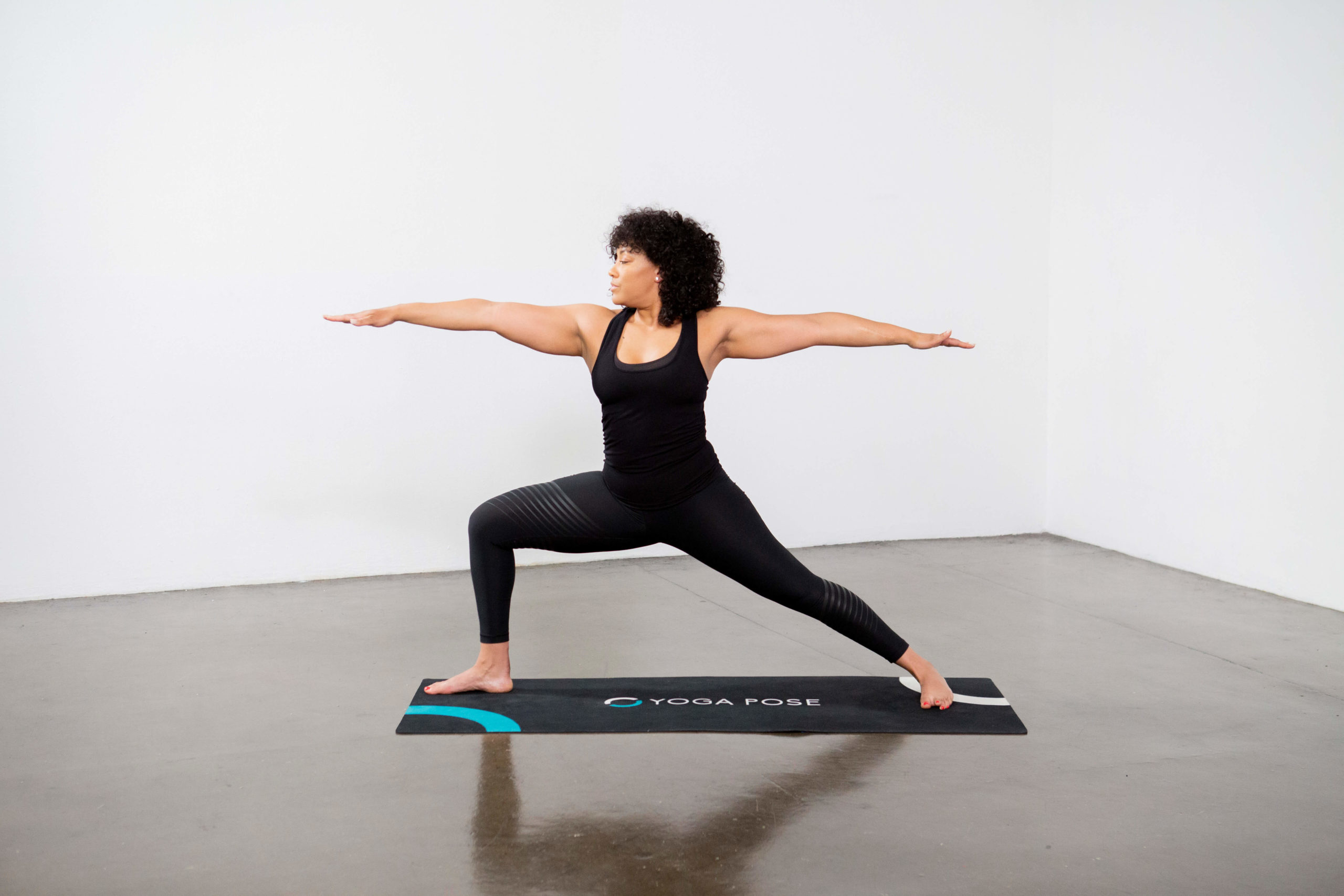
1. Warrior II for Empowerment
Warrior II (Virabhadrasana II) is a powerful pose that grounds the feet into the earth and brings stability to the core while inducing a sense of confidence and empowerment. Practice Warrior II on both sides of the body for when you’re feeling down or discouraged.
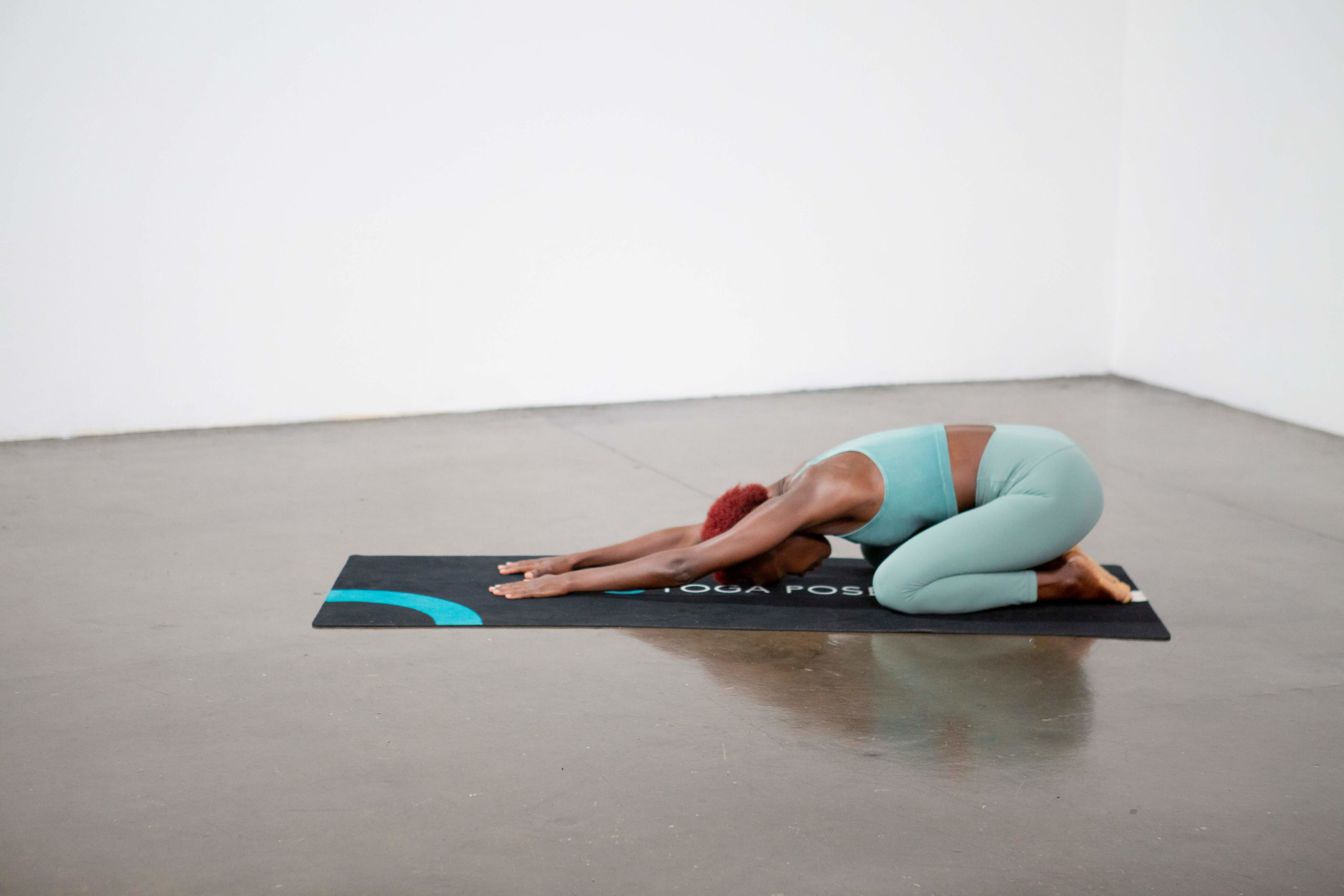
2. Child’s Pose for Comfort
Child’s Pose (Balasana) is a common pose added throughout yoga sequences to give you rest in challenging times. Similarly, Child’s pose is an ideal resting pose to bring comfort on more challenging days. You can completely relax your muscles and rest your head safe on the ground.
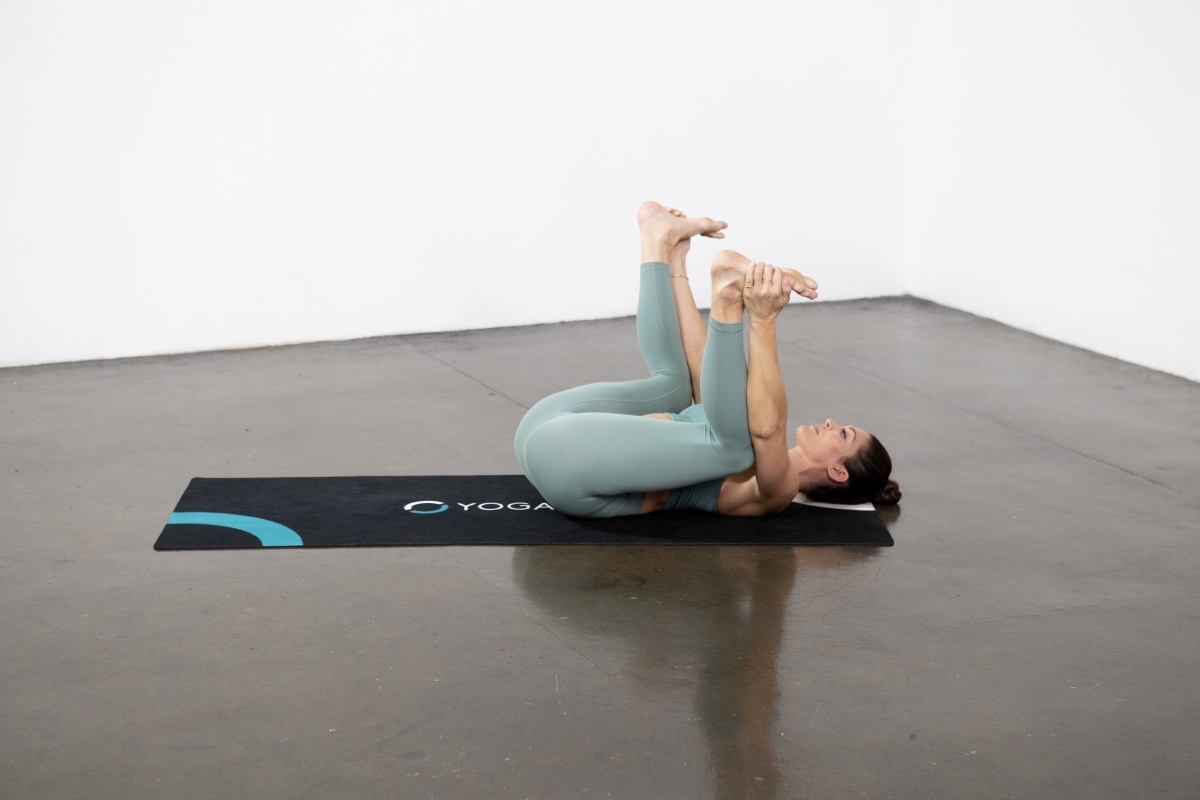
3. Happy Baby Pose
Using yoga for mental health is about finding balance inside. Some days you feel energetic and focused, others you feel dry and stifled. Try Happy Baby Pose (Ananda Balasana) on days when you need a burst of creativity! You can’t help but feel a little silly in this pose, so just embrace it!
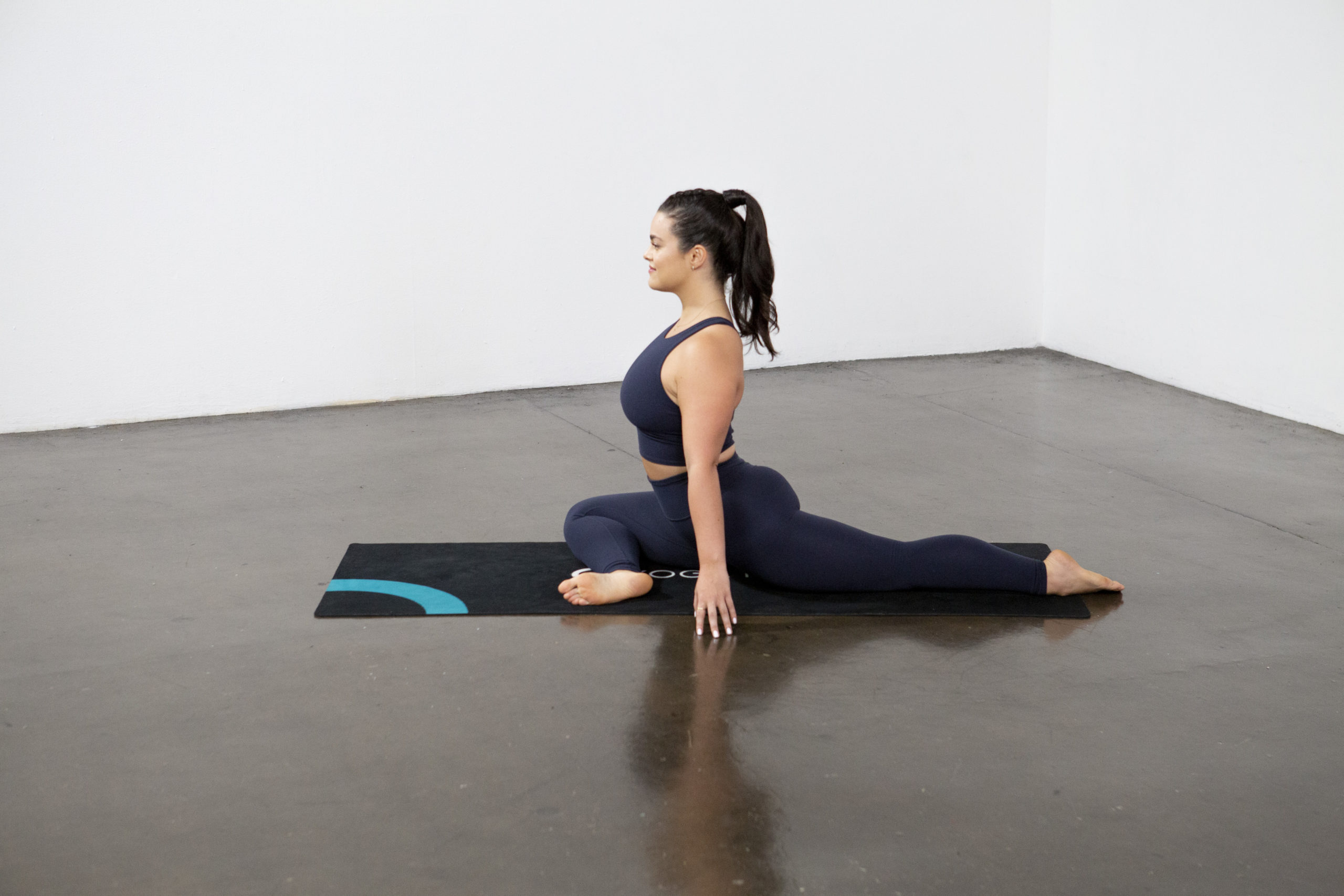
4. Pigeon Pose for Flexibility
Pigeon Pose (Eka Pada Rajakapotasana) has modifications that make it accessible to all levels. This pose brings length to the spine and legs and can deeply open the hips, depending on the variation. One-legged King Pigeon offers gains in flexibility when practiced regularly.
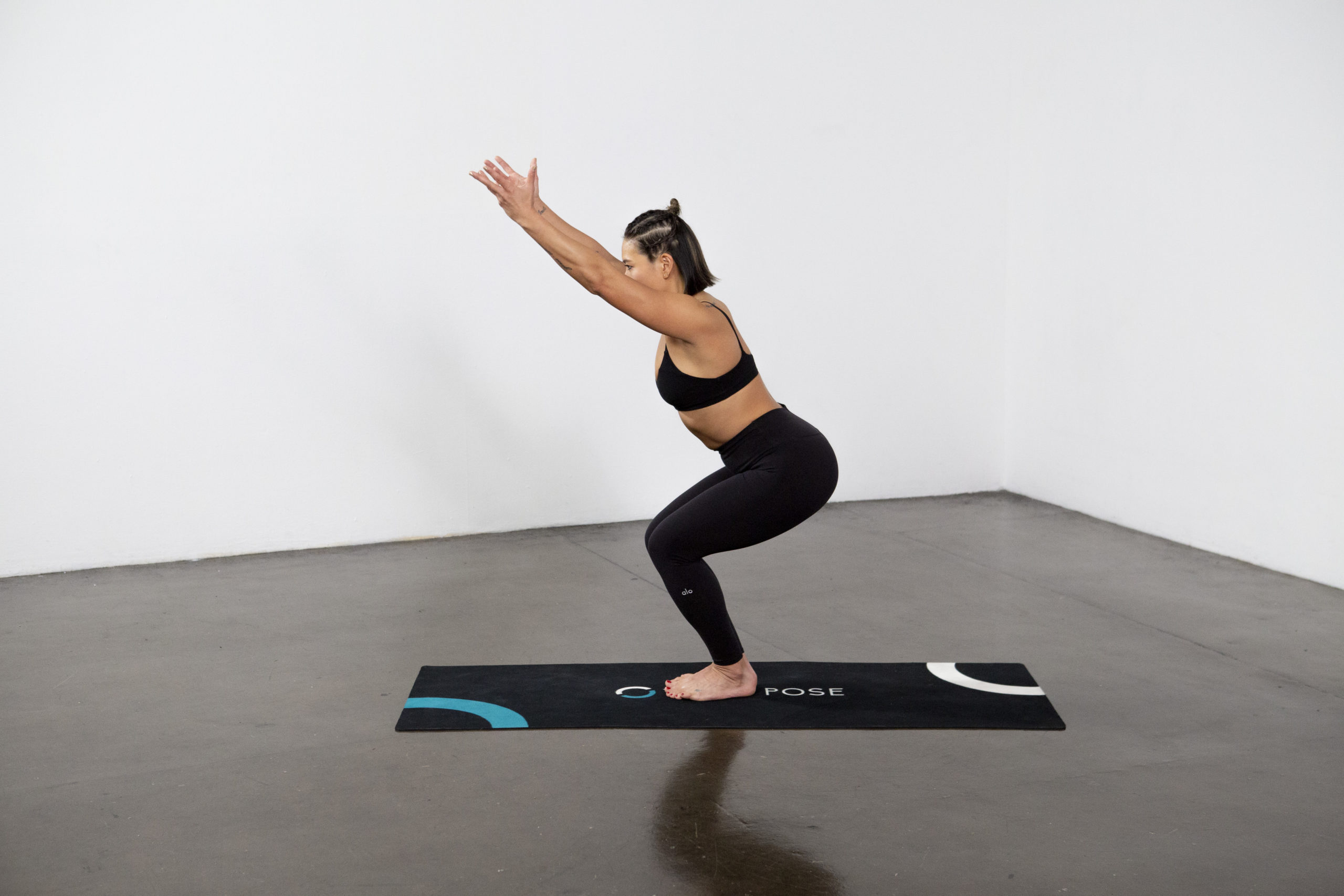
5. Chair Pose for Strength
While variations of Chair Pose (Utkatasana) are accessible for all levels, it tends to be a more challenging pose in yoga. You lift your arms and stretch your joints in ways you rarely do which makes it especially uncomfortable. However, practicing Chair pose is a full body workout that builds strength in the core, legs, and upper body.
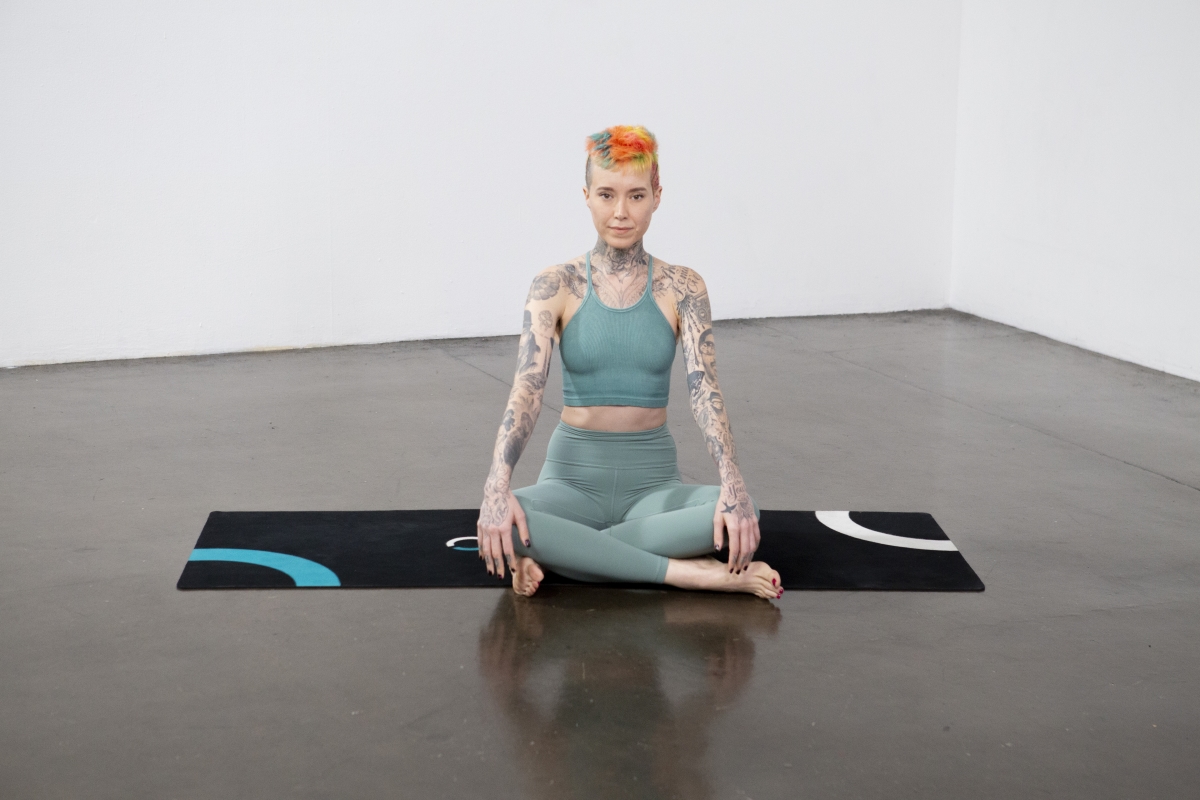
6. Easy Pose for Meditation
When you just need to regroup and clear your mind, bring yourself to Easy Pose (Sukhasana). Easy pose got its name for a reason—all you have to do in this mental health yoga pose is sit in a comfortable space, close your eyes and breath.
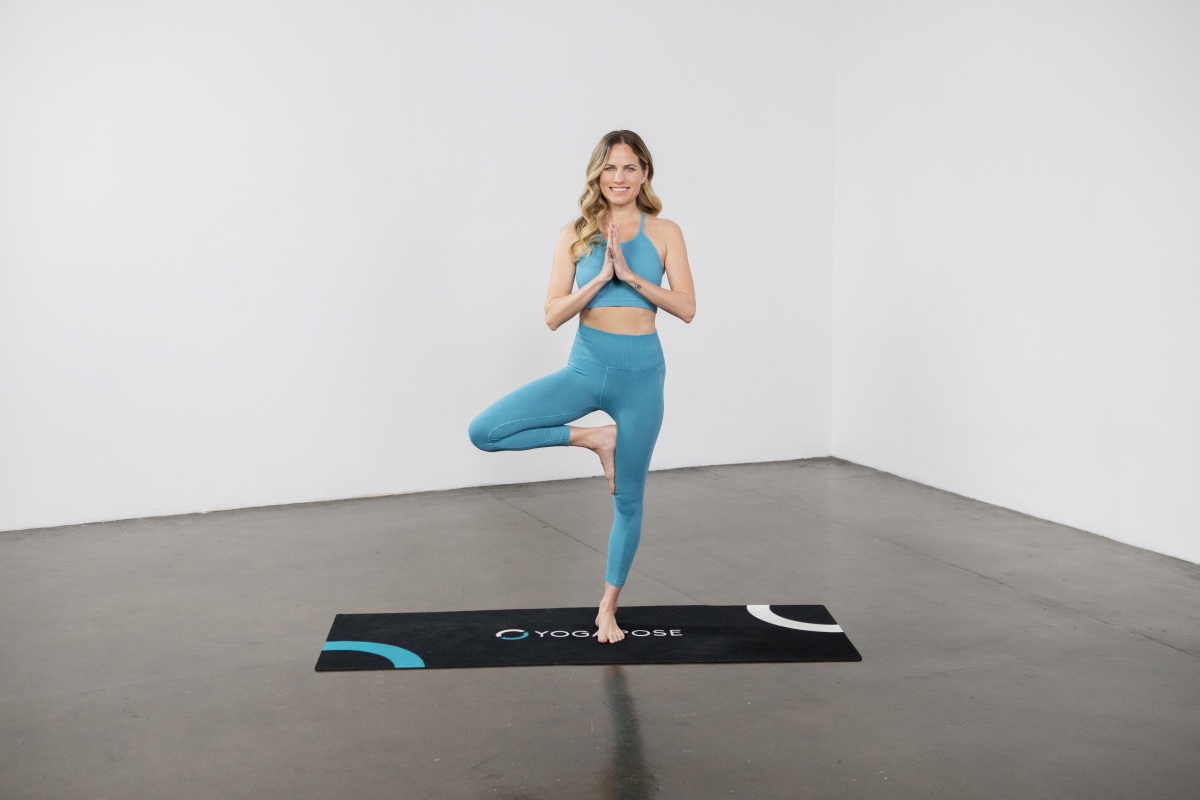
7. Tree Pose for Peacefulness
When you’re seeking a sense of peace, try Tree Pose (Vriksasana). Tree pose helps you feel balanced (both literally and figuratively) and requires that you stand strong and tall like a peaceful tree. Imagine digging your roots (feet) deep into the ground for stability and use a wall for support if necessary.
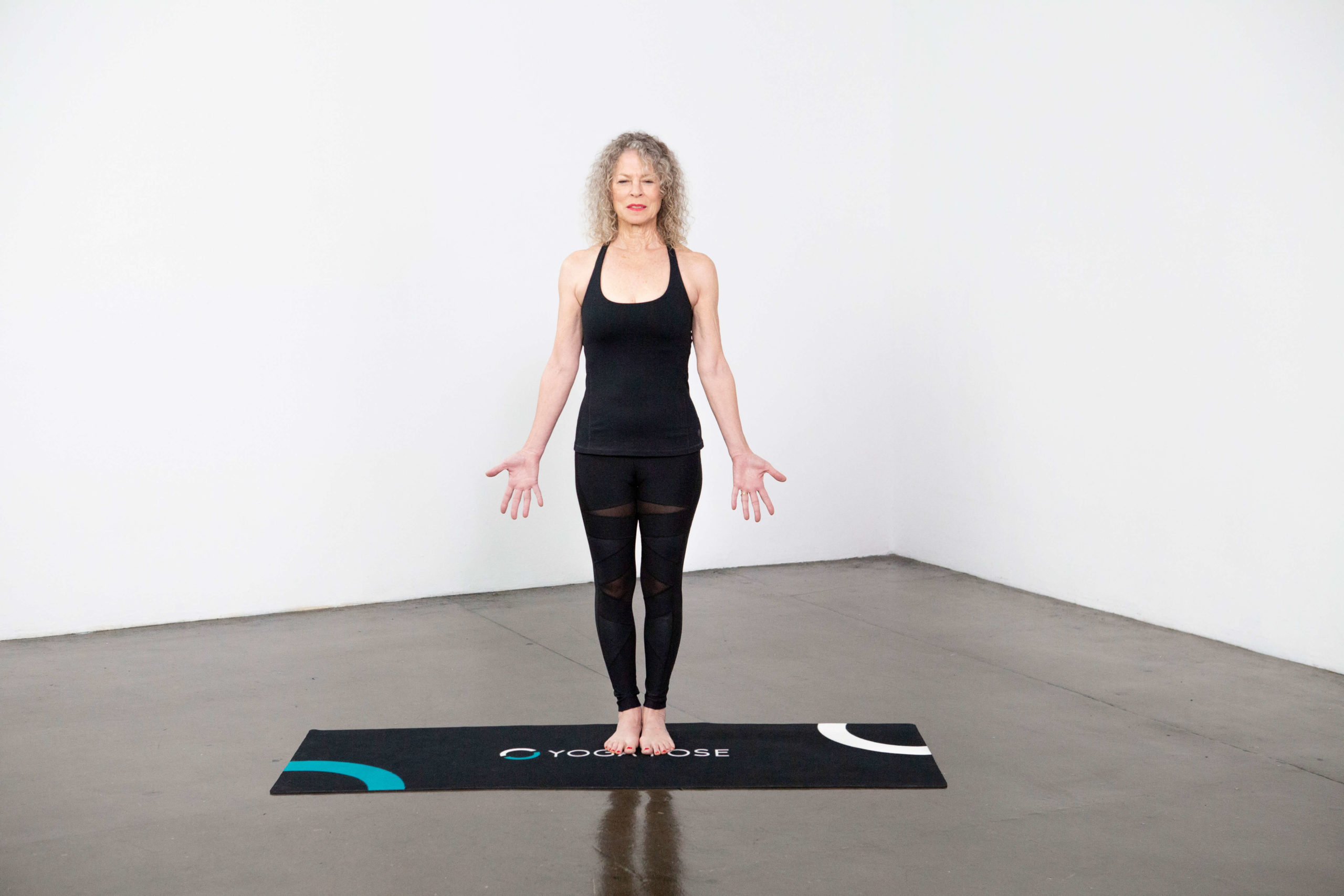
8. Mountain Pose for Staying Grounded
Yoga for mental health looks different everyday. Some days you need to lie down or sit on the floor, others you want to stand tall like an immovable mountain—this is where Mountain Pose (Tadasana) comes in. Use Mountain pose for staying grounded when life seems shaky. Ground all four corners of your feet into the floor and reach the crown of your head into the sky like a tall mountain.
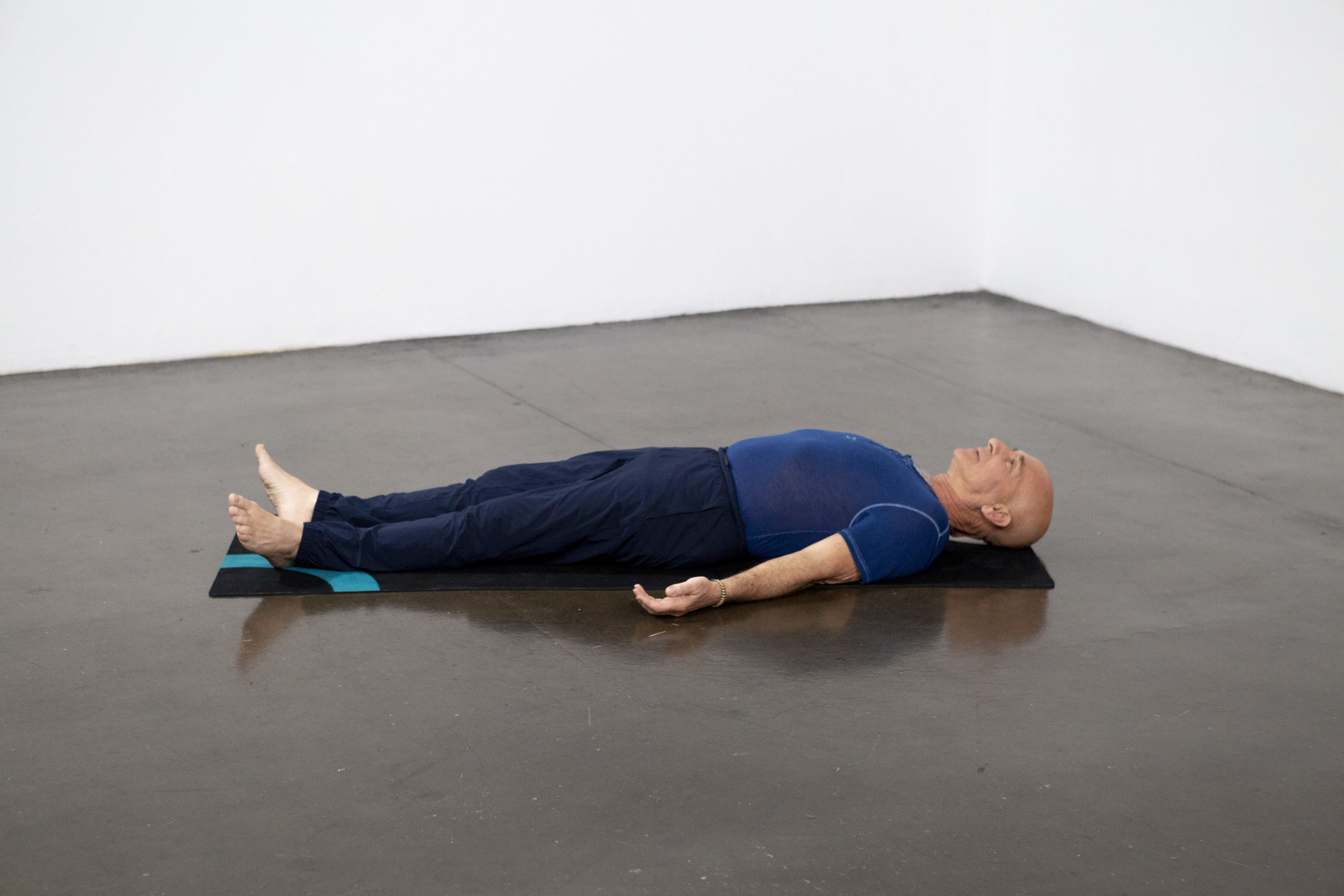
9. Corpse Pose for Rest & Compassion
When it comes to mental health and yoga, we can’t leave Corpse Pose out. Despite requiring no more physical effort than laying on the floor, Corpse pose requires purposefulness and dedication to reap the benefits. Make a comfortable place on the floor with your mat, blankets and any other props you enjoy. Play soothing music and release the full weight of your body into the floor. Try relaxing your mind. When it strays to errands or shortcomings, be compassionate with yourself. Always bring your attention back to your breath and try soaking in the pure magic of simply being.
